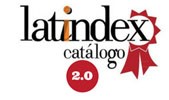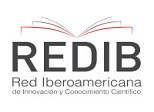Teacher Collectivism as a Tool of Educational Management in the Teaching-Learning Process at Fausto Molina Fiscal Educational School
DOI:
https://doi.org/10.69890/hallazgos21.v8i2.618Keywords:
Teacher collectivism, knowledge management, management tools, multmidisciplinary collaborationAbstract
The present investigative work is based on the analysis of knowledge management and its incidence in the teaching-learning process in the "Fausto Molina" Fiscal Educational Unit. The objective was to diagnose teacher collectivism as a tool for educational and knowledge management. For the research, a validated instrument was used where 6 items of the knowledge management questionnaire for educational innovation in universities were applied. The variables studied were supported for fellow teachers to carry out educational management initiatives with autonomy, internal knowledge of teachers as a strategic organizational component, organization of multidisciplinary collaboration among teachers, and coordination of activities for the creation of knowledge. collective, the implementation of virtual communities for the exchange and creation of collective knowledge and the access provided by managers to incentive systems. It is concluded that teacher collectivism is an important educational management tool that presents strengths and weaknesses of the educational unit under study.
References
Aldana, G. L. (2017). Caracterización de la gestión pedagógica desde los elementos de evaluación y trabajo en equipo en la IED Carmen de Carupa. https://1library.co/document/zx24ep4q-caracterizacion-gestion-pedagogica-elementos-evaluacion-trabajo-carmen-carupa.html
Armengol, C., Flores, Q. P., & Gairín, J. (2019). Acreditación, educación superior y respuesta del profesorado entre 2008-2017. Revista de Educación Superior del Sur Global - RESUR, 7(1), 21-37.
Bonett, D. (2002). Sample size requirements for testing and estimating coefficient alpha. Journal of educational and behavioral statistics, 27(4), 335-340. https://doi.org/10.3102/10769986027004335
Mosquera Enriquez, J. L., & Burbano Burbano, Y. L. (2017). Aportes de la gestión del conocimiento a la resignificación del currículo en el área de inglés de básica primaria de la Institución Educativa San Agustín-sede Libertador. https://bibliotecadigital.oducal.com/Record/ir-10839-2027/Details
Nagles, N. (2007). La gestión del conocimiento como fuente de innovación. Revista Escuela de Administración de Negocios, (61), 97-102.
Nunnally, J. & Bernstein, I. (1994). Psychometric theory. New York: McGraw-Hill, Inc.
Rey, A. (2014). Gestión pedagógica del docente y gestión axiológica del conocimiento. Universidad Arturo Michelena. Valencia-Venezuela. https://dialnet.unirioja.es/servlet/revista?codigo
Salas, N., & Garza, M. (2016). Transferencia de conocimiento: un mecanismo de competitividad para las PYMES en el Estado de Nuevo León. Inquietud Empresarial, XVI, 147-165. https://core.ac.uk/download/pdf/154345989.pdf
Taber, K. (2018). The use of Cronbach’s alpha when developing and reporting research instruments in science education. Research in Science Education, 48(6), 1273-1296. https://bit.ly/32SCywU
Vázquez González, G. C., Jiménez Macías, I. U., & Juárez Hernández, L. G. (2021). Análisis de validez de constructo del cuestionario “Gestión del Conocimiento para la innovación educativa en universidades”. Revista Fuentes. 23(3), 329–340. https://doi.org/10.12795/revistafuentes.2021.12361
Published
How to Cite
Issue
Section
License
Los artículos enviados a la Revista Científica Hallazgos21 deberán ser totalmente originales e inéditos.
Los autores son los responsables de los textos y las imágenes incluidas en los artículos y no necesariamente reflejan el pensamiento de la editorial o de la Pontificia Universidad Católica del Ecuador, Sede Esmeraldas (PUCESE).
Los autores disponen cederle a la Revista Científica Hallazgos21 todos los derechos inherentes para la edición, publicación y distribución o divulgación del mismo.
Se autoriza a las revistas firmantes de los acuerdos de Encuentros de Revistas Latinoamericanas para reproducir en parte o totalmente los artículos con la sola mención de la fuente claramente señalada.







